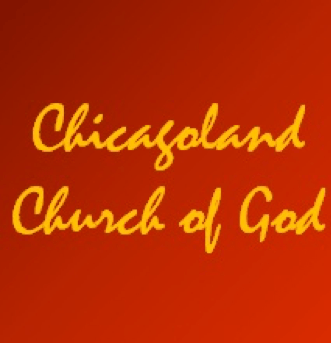When we hear the expression “Law of Moses”, we may think of the “Pentateuch” (the first five books of the Bible), the “Ten Commandments”, the “entire Old Testament” or some other part of the Scripture. But the Bible does not use “Law of Moses” like that. It uses it for that part of the law which was added because of the transgression of the ancient Israelites, as the accompanying study explains. Sure, there are many Bible verses regarding the law that Moses wrote, but there are exactly 21 references to the “Law of Moses” in the Bible. The Hebrew and Greek literally use two words in these places, our closest English equivalent would be: “Moses’ Law”. All 21 are cited in order, below, along with 5 quotes from Romans and Galatians which use the expression “works of the law”, a clear reference to the “Law of Moses”, as explained below.
By Norman Edwards – SVM Spring 2015
It is of special interest to note the Bible books that do not use the phrase “Law of Moses”. It is not found in the Pentateuch, the Major Prophets, the Psalms, the Proverbs or any passage referring to Messiah’s reign in the future. The Law of Moses is about a way of life that gave people many things to do in an effort to prevent them from going back into sinful practices.
… as Moses the servant of the LORD had commanded the children of Israel, as it is written in the Book of the Law of Moses: “an altar of whole stones over which no man has wielded an iron tool.” And they offered on it burnt offerings to the LORD, and sacrificed peace offerings (Joshua 8:31).
And there, in the presence of the children of Israel, he wrote on the stones a copy of the Law of Moses, which he had written (Joshua 8:32).
This law was written on whole stones so that everyone would know what it was. Ignorance of the law was no excuse. The large stones were plastered smooth, so small letters could be used, allowing many words to fit. All of the laws for sacrifices, washings and other ordinances could possibly have been contained on these stones.
“Therefore be very courageous to keep and to do all that is written in the Book of the Law of Moses, lest you turn aside from it to the right hand or to the left, …” (Joshua 23:6).
The law was designed to keep Israel from going astray. It worked effectively during the time of Joshua and the elders who followed him (Joshua 24:31). As Israel began to disregard the Law of Moses, they departed from the fundamental principles of God as well.
“And keep the charge of the LORD your God: to walk in His ways, to keep His statutes, His commandments, His judgments, and His testimonies, as it is written in the Law of Moses, that you may prosper in all that you do and wherever you turn” (1 Kings 2:3).
This was David’s admonition to Solomon as he was dying. He told Solomon to keep God’s statutes, commandments, judgments and testimonies—the most important things—as they were written in the Law of Moses. The Law of Moses explains how to carry out these things—and what to do when people disobey.
But the children of the murderers he did not execute, according to what is written in the Book of the Law of Moses, in which the LORD commanded, saying, “Fathers shall not be put to death for their children, nor shall children be put to death for their fathers; but a person shall be put to death for his own sin” (2 Kings 14:6).
This verse is referring to Deuteronomy 24:16, which is clearly part of the Law of Moses. One can tell from the overall context as well as the direct mention of priests and Levites eight verses earlier in Deuteronomy 24:8.
Now before him [Josiah] there was no king like him, who turned to the LORD with all his heart, with all his soul, and with all his might, according to all the Law of Moses; nor after him did any arise like him (2 Kings 23:25).
Josiah not only had a heart for God, he followed all the Law of Moses as well.
Also Jehoiada appointed the oversight of the house of the LORD to the hand of the priests, the Levites, whom David had assigned in the house of the LORD, to offer the burnt offerings of the LORD, as it is written in the Law of Moses, with rejoicing and with singing, as it was established by David (2 Chronicles 23:18).
This verse is particularly instructive. The Law of Moses explained about the priests, Levites and offerings. It was David who organized the courses of the priests (1 Chronicles 23:6) and who set up song services (1 Chronicles 6:31). The Law of Moses does not specify priestly courses or any kind of music for the service.
Then they slaughtered the Passover lambs on the fourteenth day of the second month. The priests and the Levites were ashamed, and sanctified themselves, and brought the burnt offerings to the house of the LORD. They stood in their place according to their custom, according to the Law of Moses the man of God; the priests sprinkled the blood received from the hand of the Levites (2 Chronicles 30:15,16).
Then Jeshua the son of Jozadak and his brethren the priests, and Zerubbabel the son of Shealtiel and his brethren, arose and built the altar of the God of Israel, to offer burnt offerings on it, as it is written in the Law of Moses the man of God (Ezra 3:2).
… this Ezra came up from Babylon; and he was a skilled scribe in the Law of Moses, which the LORD God of Israel had given. The king granted him all his request, according to the hand of the LORD his God upon him. Some of the children of Israel, the priests, the Levites, the singers, the gatekeepers, and the Nethinim came up to Jerusalem in the seventh year of King Artaxerxes (Ezra 7:6,7).
The above references are all about the duties of the Priests and Levites under the Law of Moses. The Passover Sacrifice was originally given as a home sacrifice with no need for a priesthood (Exodus 12). The Law of Moses changed it to a temple sacrifice in Deuteronomy 16:1-7, like all of the other added sacrifices (Deuteronomy 12:5-14; 14:22-26; 15:19-20; 26:2).
Now all the people gathered together as one man in the open square that was in front of the Water Gate; and they told Ezra the scribe to bring the Book of the Law of Moses, which the LORD had commanded Israel (Nehemiah 8:1).
This book obviously contained the Law of Moses as well as the “Law of God” (Nehemiah 8:8). Ezra 8 and 9 show that the book they were reading contained commands to the priests and Levites (Law of Moses). But there are also references to each book of the Pentateuch. In order to implement the instruction of Deuteronomy one needs the other books of Moses for details. Deuteronomy 18:1 indicates the Levites are to offer the offerings. One needs all five books to implement the Law of Moses.
“Yes, all Israel has transgressed Your law, and has departed so as not to obey Your voice; therefore the curse and the oath written in the Law of Moses the servant of God have been poured out on us, because we have sinned against Him” (Daniel 9:11)
“As it is written in the Law of Moses, all this disaster has come upon us; yet we have not made our prayer before the LORD our God, that we might turn from our iniquities and understand Your truth” (Daniel 9:13).
The Law of Moses specified the punishments that would come for disobedience. (Deuteronomy 28:15).
“Remember the Law of Moses, My servant, which I commanded him in Horeb for all Israel, with the statutes and judgments” (Malachi 4:4).
The book of Malachi was written largely to the priests and Levites to carry out their duty under the Law of Moses (Malachi 1:6; 2:1,4-8; 3:3) By the time Christ came, the priests and Levites had largely replaced the principles of God and the Law of Moses with their own tradition (Matt 15:4-9; 23:1-38), which made people contentious and greedy, rather than bringing them to God.
Now when the days of her purification according to the Law of Moses were completed, they brought Him to Jerusalem to present Him to the Lord (Luke 2:22).
This purification was explained in Leviticus 12. It required a priest, and was therefore part of the law of Moses.
Then He said to them, “These are the words which I spoke to you while I was still with you, that all things must be fulfilled which were written in the Law of Moses and the Prophets and the Psalms concerning Me” (Luke 24:44).
Jewish scholars recognize three major divisions of the Scriptures: “the Law, the Prophets and the Writings”. Some Bible students will say that Christ is referring to those three divisions here—which would make the “Law of Moses” equivalent to the Pentateuch. So why did Christ say “Law of Moses” instead of just “Law”? For the same reason He said “Psalms” instead of “Writings”. The Writings consist of Psalms, Proverbs, Job, Ecclesiastes, Song of Solomon, Lamentations, Daniel, Esther, Ezra, Nehemiah and Chronicles. But the subject here is “things that must be fulfilled…concerning Me (Christ)”. Of all the “Writings” the vast majority of the prophecies of Christ are in the Psalms—the Book of Daniel having some and the Song of Solomon sometimes interpreted as a prophecy. Similarly, the Law of Moses expounding the sacrifices and the Levitical rituals was all designed to point to Christ and the need for a Savior. When Christ came, the prophecies about him were fulfilled from the Prophets and from Psalms, and the purpose of the Levitical sacrifices was completed. Yes, Abraham’s Sacrifice of Isaac, and the Passover lamb also point to Christ and are not part of the Law of Moses, but Christ leaves them out of His summary statement here, lest anyone think that the Ten Commandments and other righteous principles of the Law are no longer necessary after His coming. These righteous principles are the laws He is writing on our hearts (Jeremiah 31:33-34; Romans 2:12-16; Hebrews 8:10-11; 10:15-17)
“If a man receives circumcision on the Sabbath, so that the Law of Moses should not be broken, are you angry with Me because I made a man completely well on the Sabbath?” (John 7:23).
“… and by Him [Christ] everyone who believes is justified from all things from which you could not be justified by the Law of Moses (Acts 13:39).
But some of the sect of the Pharisees who believed rose up, saying, “It is necessary to circumcise them and to command them to keep the Law of Moses” (Acts 15:5).
The Law of Moses was never intended to produce eternal life (Hosea 6:6; Micah 6:6-8; Hebrews 10:4). It was intended to remind Israel of God’s laws, lest they break them so badly that He would destroy them, and to show them His salvation to come through Christ. Those who were not descended from Abraham had no part in the covenant of circumcision, and those who were not Israelites had no requirement to keep the Law of Moses. Abel, Enoch and Noah were made righteous by faith (Hebrews 11:1-7) without the covenants of circumcision or the Law of Moses. That same righteousness through faith is available to the believer today. The Law of Moses – those additions requiring a Levitical priesthood – ended for everybody in 70 A.D. when the temple and priesthood were destroyed. God, in His wisdom, has seen that they have not resumed.
So when they had appointed him a day, many came to him at his lodging, to whom he explained and solemnly testified of the kingdom of God, persuading them concerning Jesus from both the Law of Moses and the Prophets, from morning till evening (Acts 28:23).
What shall we say then? That Gentiles, who did not pursue righteousness, have attained to righteousness, even the righteousness of faith; but Israel, pursuing the law of righteousness, has not attained to the law of righteousness. Why? Because they did not seek it by faith, but as it were, by the works of the law. For they stumbled at that stumbling stone (Romans 9:30-32).
(See comments on Galatians below)
“You shall not muzzle an ox while it treads out the grain.” Is it oxen God is concerned about? (1 Corinthians 9:9)
This is a citation of Deuteronomy 25:4, clearly part of the added Law of Moses.
… knowing that a man is not justified by the works of the law but by faith in Jesus Christ, even we have believed in Christ Jesus, that we might be justified by faith in Christ and not by the works of the law; for by the works of the law no flesh shall be justified (Galatians 2:26). This only I want to learn from you: Did you receive the Spirit by the works of the law, or by the hearing of faith? (Galatians 3:2)
Therefore He who supplies the Spirit to you and works miracles among you, does He do it by the works of the law, or by the hearing of faith? (Galatians 3:5)
For as many as are of the works of the law are under the curse; for it is written, “Cursed is everyone who does not continue in all things which are written in the book of the law, to do them (Galatians 3:10).
We can know that Galatians 3:10 is referring to the “law of Moses” because it is citing Deuteronomy 27:25, which is about the whole stones containing the “Law of Moses” (Deuteronomy 27:6; Joshua 8:31). Those laws contained curses for disobedience. The works that they were given to do would remind them of Christ to come, but they would not produce the faith that justified Abraham, or every believer, today.
Anyone who has rejected Moses’ law dies without mercy on the testimony of two or three witnesses (Hebrews 10:28).
This refers to Deuteronomy 17:6-7, which again deals with the punishments of the Law of Moses. The judges were not given the option of granting mercy to a murderer. With human judges prone to corruption, and with carnal people prone to making excuses to escape punishment, this surety of death for murder would reduce the number of murders in society. But is the death penalty for murder part of an eternal law of God or part of the added Law of Moses? God did not give Cain the death penalty for murder, but banished him and set a mark on him to protect him (Genesis 4:9-15). About 4000 years later, Jesus forgave the men who crucified him (Luke 23:32-34).
Some Laws of God More Important than Others
To some, it might seem inconsistent of God to give different commands at different times. But that is what He in His Wisdom has chosen to do. The books of the Bible were written over the space of at least 1600 years. Some people had direct access to Christ, apostles or prophets, others have not. When Jesus was asked about the greatest commandments, He did not say they are all equally important, but He gave the two most important commandments (Matthew 22:37-39). A person who wants to serve God with his whole heart can do a lot with just those two commandments. But when a people reject God time after time, He gives them laws that are not the best:
…because they rejected my ordinances and did not observe my statutes, and profaned my sabbaths; for their heart went after their idols. Nevertheless, my eye spared them, and I did not destroy them or make an end of them in the wilderness because they had not executed my ordinances, but had rejected my statutes and profaned my Sabbaths, and their eyes were set on their ancestors’ idols. Moreover I gave them statutes that were not good and ordinances by which they could not live. (Ezekiel 20:16-17, 24-25, NRSV)
One need not be troubled about which parts of the Old Testament are parts of the Law of Moses, and whether or not they have application today with the destruction of the Levitical priesthood. In some cases it is obvious; we no longer offer animal sacrifices. In other cases, we may need to ask our Father to show us by the power of His Spirit:
“However, when He, the Spirit of truth, has come, He will guide you into all truth; for He will not speak on His own authority, but whatever He hears He will speak; and He will tell you things to come” (John 16:13).
We are of God. He who knows God hears us; he who is not of God does not hear us. By this we know the spirit of truth and the spirit of error (1 John 4:6).





